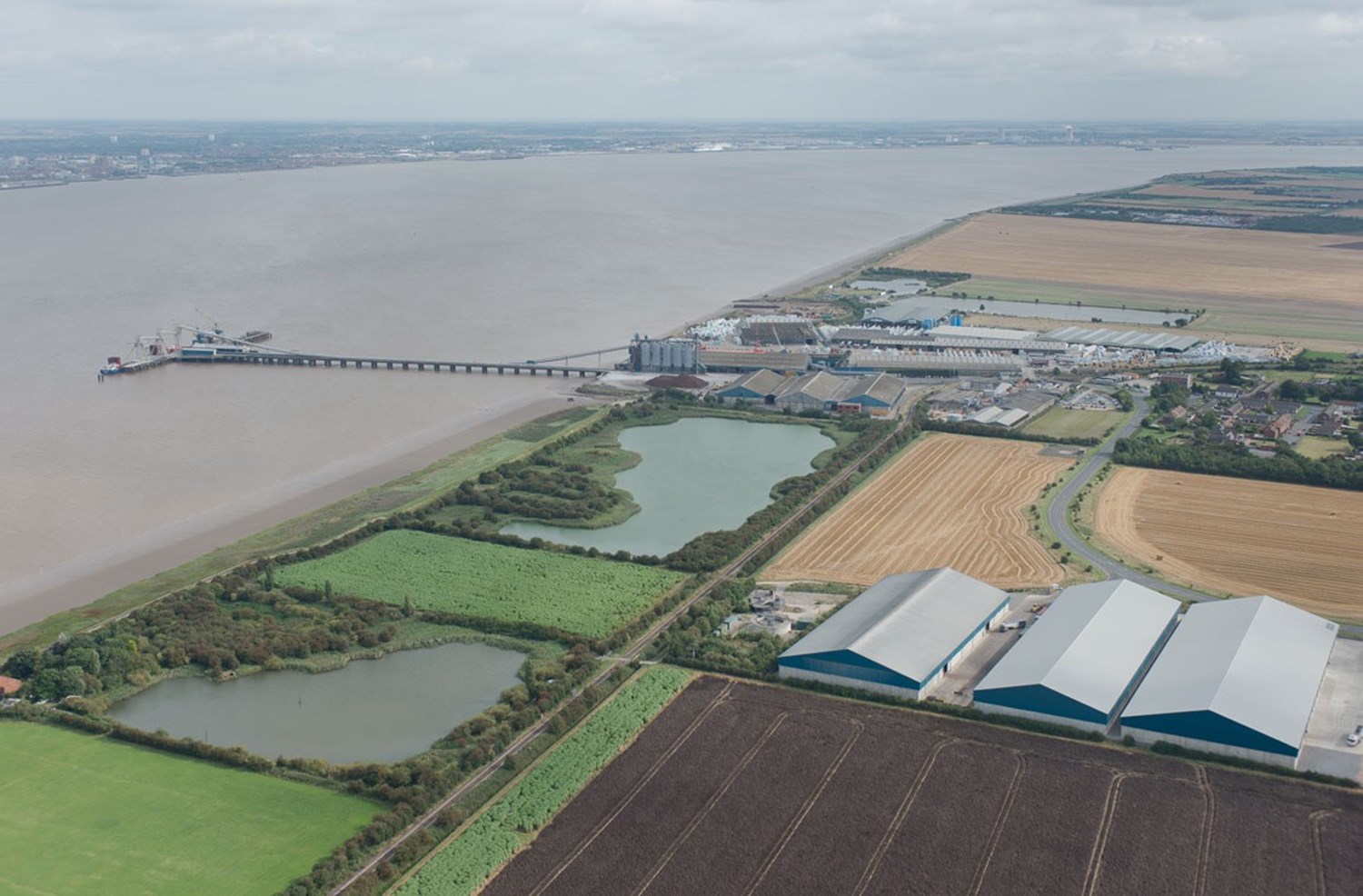PPL Humber Bulk Terminal LTD is a key facility for handling and storing dry bulk cargo in the UK, located on the south bank of the Humber Estuary and operated by Peel Port Logistics. Our East Coast logistics Hub is strategically placed to offer our customers efficient, reliable and cost-effective ‘One-Stop-Shop' services.
Knowledge, ambition, innovation.
At the Humber Bulk Terminal, we handle various dry bulk commodities, including grain, biomass, agribulks, aggregates and industrial minerals. Our state-of-the-art facility is equipped with modern handling equipment and technology, allowing to safely and efficiently handle large volumes of cargo.
Our terminal has direct access to three NAABSA berths, allowing easy access for vessels up to 6,000 dwt, with max LOA of 120m, beam of 18m and draft of 6.5m. We also have excellent road links, providing seamless transport connections to major cities and markets throughout the UK and beyond,
Our highly skilled and experienced team of professionals at Humber Bulk Terminal are dedicated to providing exceptional customer service with a focus on safety, efficiency and reliability. We offer the full range of PPL added-value services to meet the unique needs of our customers.
Whether you're looking to import or export bulk cargo or require specialised handling and storage services, Peel Ports Logistics' Humber Terminal is the ideal location for your logistics needs
Services
- Ship Chartering
- Customs Clearance
- Vessel Agency
- Stevedoring
- Transportation
- Freight Forwarding
Facilities
- Covered Storage capacity of over 270,000 sq.ft.
- Open storage bays in the region of 90,000sq.ft.
- Fully automated conveyor fed import and export system
- Two jetty cranes capable of handling up to 400t of bulk product per hour.
- Two import & one export berths.
- FIAS, TASCC and Organic Food Federation approved.
Frequently Asked Questions
Frequently asked questions
What is a dry bulk terminal?
Dry bulk terminals are facilities designed for the handling, storage, and transportation of dry bulk commodities. Dry bulk refers to goods that are unpackaged and in granular or particulate form and are typically transported in large, 'solid-state' quantities.
What is the difference between liquid bulk and dry bulk?
-
Liquid Bulk: This includes liquids such as oil, chemicals, and liquid natural gas. Ships designed for liquid bulk cargo are known as tankers.
-
Dry Bulk: This includes dry, granular, or solid materials such as minerals, grain, coal, iron ore, and fertilizers. Ships designed for dry bulk cargo are known as bulk carriers.
What are the examples of dry bulk cargoes?
Dry bulk cargoes cover a wide range of solid, granular, or bulk materials that are transported in large quantities. Some examples include: Iron ore, coal, grain, cement, fetilisers and more. These examples showcase the diversity of dry bulk cargoes, ranging from raw materials for industrial processes (i to agricultural products and construction materials.
What is dry bulk shipping?
Dry bulk shipping refers to the transportation of unpackaged, dry commodities often in large quantities via bulk carrier ships. These vessels are equip to carry various kinds of cargo and are essential for international trade.
